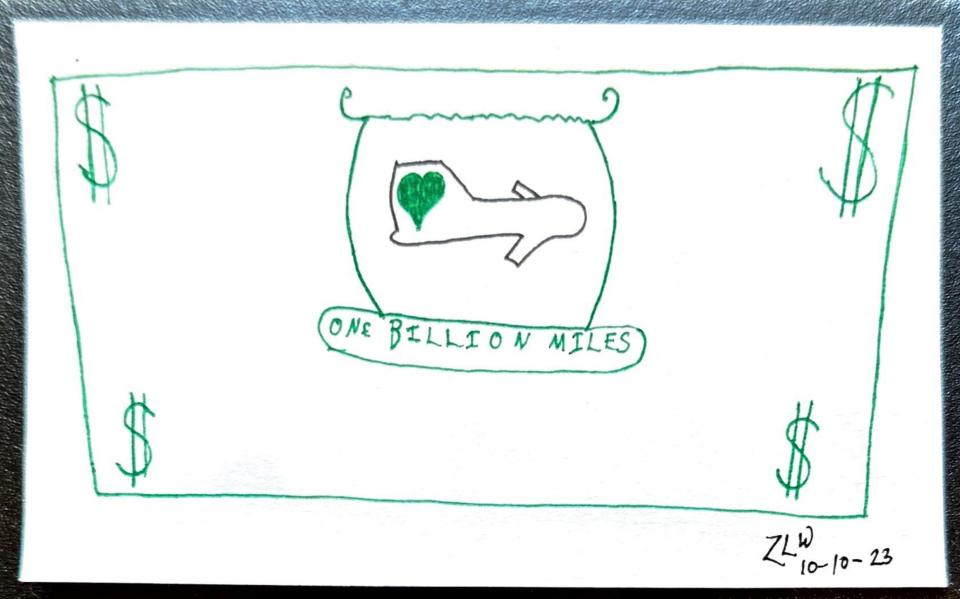Don't bother with an airline loyalty program if you're this traveler | Cruising Altitude
Friends, readers, I have to come out of the closet. For the last few years, I’ve had frequent flyer status with Delta Air Lines. But this coming year, I’m excited to be a free agent again.
It turns out I’m not alone.
The frequent flyer program landscape has shifted a lot in recent years, and it has many people reevaluating their loyalty. Especially with news of Delta’s sweeping changes (though those may be scaled back somewhat in the coming weeks), many of us travel nerds are left wondering which aluminum tubes to pledge our loyalty to. And, even without those upcoming changes, I expect to be losing those perks at the end of this year.
“This is all designed for the future to eliminate the frequent flyer program,” Charles Wade, a Delta Million Miler and Platinum Pro in American Airlines’ AAdvantage program, told me. He suspects that airlines are realizing that fuller planes mean less need to provide perks to travelers. Wade speculated that the major carriers are going to do away with more and more benefits.
William McGee, senior fellow for aviation and travel at the American Economic Liberties Project, said airlines get too much financial benefit from the programs to ever do away with them entirely.
“United’s Mileage program is valued by financial analysts at a higher value than the airline itself,” he told me, citing a recent Atlantic article. “The conversation begins and ends right there. United flies airplanes on the side.”
The American Economic Liberties Project is advocating for tighter regulation of frequent flyer programs, arguing they should be treated more like financial institutions.
So, what are frequent flyer programs now? Here’s why airlines love them, but the casual traveler may not need to bother:

How frequent flyer programs started
According to McGee, frequent flyer programs really took off (pun intended) in the 1980s when American Airlines introduced AAdvantage.
He said the programs were intended to serve two purposes for carriers: to get a better handle on who their most loyal customers were and to entice those travelers to keep coming back.
“The average American consumer has more brand loyalty to toothpaste or shampoo … than a company that is going to strap you into a pressurized tube and hurtle you across the troposphere,” McGee said.
Perks like free upgrades and reward tickets enticed flyers to stick to one airline for more, if not all, of their travels, as a way to build up their potential benefits arsenal.
Irv Kass, a Platinum Medallion member in Delta’s SkyMiles program and a Million Miler on United Airlines, told me the theory certainly worked on him and his family.
“We’re into their ecosystem. We have their credit cards, we use their lounge. I’ve been Platinum since 2016,” he said.
Who benefits most from frequent flyer programs?
McGee said, sure, those who travel often get perks in their program of choice. But, really, the airlines themselves benefit from their customers’ loyalty more than anyone or anything else.
“It's not a joke anymore to say they fly airplanes on the side,” he said. “I don’t know that they could have imagined that the programs would be as huge as they are now and that the revenue would be so huge.”
For travelers, the perks are becoming harder and harder to come by, giving rise to the now-cliche refrain: “When everyone is an elite, no one is.”
Kass and Wade both said they’re getting upgraded less frequently than ever in their own travels these days, and I can say the same for myself.
Are frequent flyer programs worth it for leisure travelers?
Not really.
“If you’re a casual traveler, I think at this point the game is over,” McGee said. “If you’re somebody who flies once a year or less, there’s no benefit to this. If you’re looking to save money, then save money by paying less for the fare.”
He noted that the average American only flies about once every 18 months.
Kass, who said he takes about 10 trips per year, said the perks he most values, like free upgrades to extra legroom seats, could be unattainable with changes to the SkyMiles program.
“To get my equivalent status, I would have to spend either $18,000 a year on tickets or $180,000 on my card and that’s not going to happen, it’s just not going to happen,” he said.
And that’s why I’m ready to be a free agent again. I can’t splurge as much as I’d have to to get status on my own dime, so I may as well stick with the wallet-friendly option of chasing the best fare.
If your company isn’t sending you overseas every other week with an expense account, I encourage you to do the same.
Zach Wichter is a travel reporter for USA TODAY based in New York. You can reach him at [email protected]
This article originally appeared on USA TODAY: Why airline status isn't worth it for most flyers | Cruising Altitude
